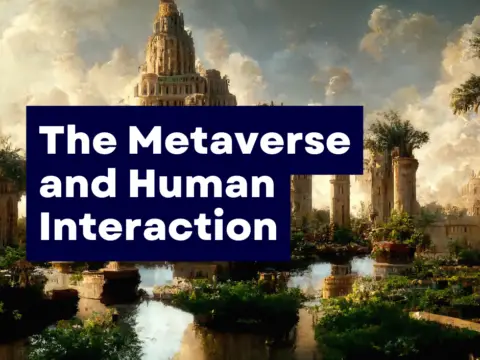Artificial Intelligence (AI) is revolutionizing the healthcare landscape, ushering in a new era of improved diagnostics and enhanced patient outcomes. Here’s an in-depth exploration of how AI is reshaping healthcare:
Precision Diagnostics: AI algorithms analyze vast datasets, including medical images, genomic information, and patient records, to provide precise and rapid diagnostics. This not only expedites the diagnostic process but also enhances accuracy, leading to more effective treatment plans.
Medical Imaging Advancements: In radiology and pathology, AI is streamlining the interpretation of medical images. Machine learning models can detect anomalies, tumors, and other abnormalities with a high level of accuracy, aiding healthcare professionals in making swift and accurate diagnoses.
Predictive Analytics for Early Intervention: AI leverages predictive analytics to identify individuals at risk of certain conditions before symptoms manifest. This enables early intervention and proactive healthcare management, potentially preventing the progression of diseases and improving patient outcomes.
Personalized Treatment Plans: AI analyzes patient data, including genetic information and treatment responses, to tailor personalized treatment plans. This approach, known as precision medicine, ensures that interventions are optimized for individual patients, maximizing efficacy and minimizing side effects.
Natural Language Processing (NLP) in Healthcare Documentation: NLP algorithms transform unstructured healthcare data, such as clinical notes and transcriptions, into structured information. This not only streamlines documentation processes for healthcare professionals but also enhances the accessibility of valuable patient insights.
Virtual Health Assistants and Chatbots: AI-powered virtual assistants and chatbots provide real-time support to patients, offering information, answering queries, and even monitoring symptoms. This improves patient engagement, facilitates remote healthcare delivery, and ensures continuous communication between patients and healthcare providers.
Drug Discovery and Development: AI expedites the drug discovery process by analyzing vast datasets to identify potential drug candidates. This accelerates the development of new treatments and therapies, bringing innovative solutions to market more efficiently.
Remote Patient Monitoring: AI facilitates remote monitoring of patients with chronic conditions, allowing healthcare providers to track vital signs and health metrics in real time. This not only enhances patient convenience but also enables timely interventions based on the collected data.
Fraud Detection and Healthcare Security: AI algorithms play a crucial role in identifying fraudulent activities in healthcare billing and insurance claims. Additionally, AI enhances cybersecurity measures to safeguard patient data, ensuring the integrity and confidentiality of medical information.
Operational Efficiency in Healthcare Facilities: AI optimizes administrative tasks in healthcare facilities, including appointment scheduling, resource allocation, and workflow management. This efficiency allows healthcare professionals to focus more on patient care, reducing administrative burdens.
Challenges and Ethical Considerations: While AI brings transformative benefits, challenges such as data privacy, algorithmic biases, and ethical considerations must be addressed. Striking a balance between innovation and ethical use is crucial to harness the full potential of AI in healthcare.
In conclusion, AI is a powerful force in reshaping healthcare by improving diagnostics, personalizing treatment plans, and enhancing overall patient outcomes. As technology continues to advance, the healthcare industry stands to benefit from ongoing innovations driven by artificial intelligence.


